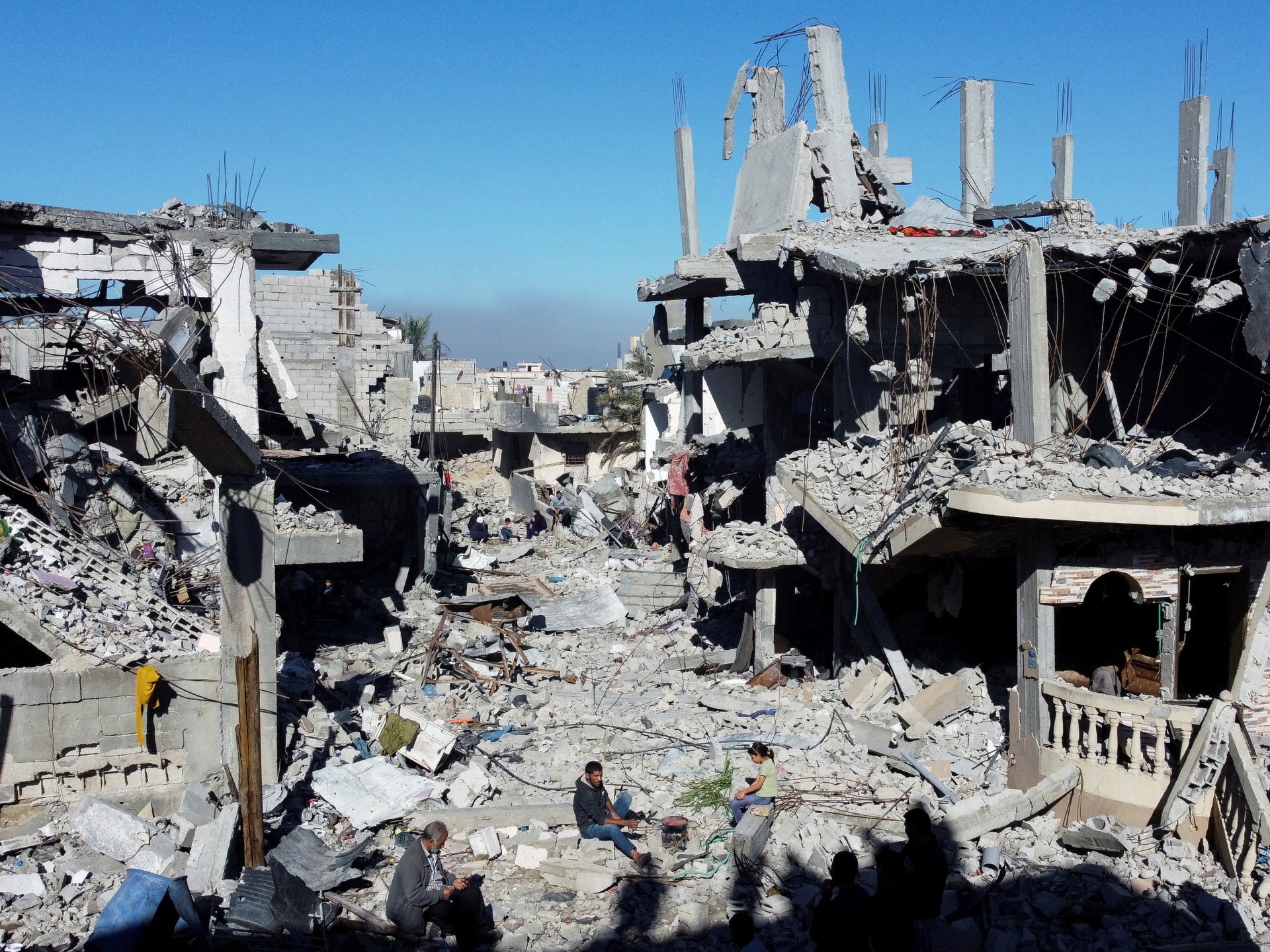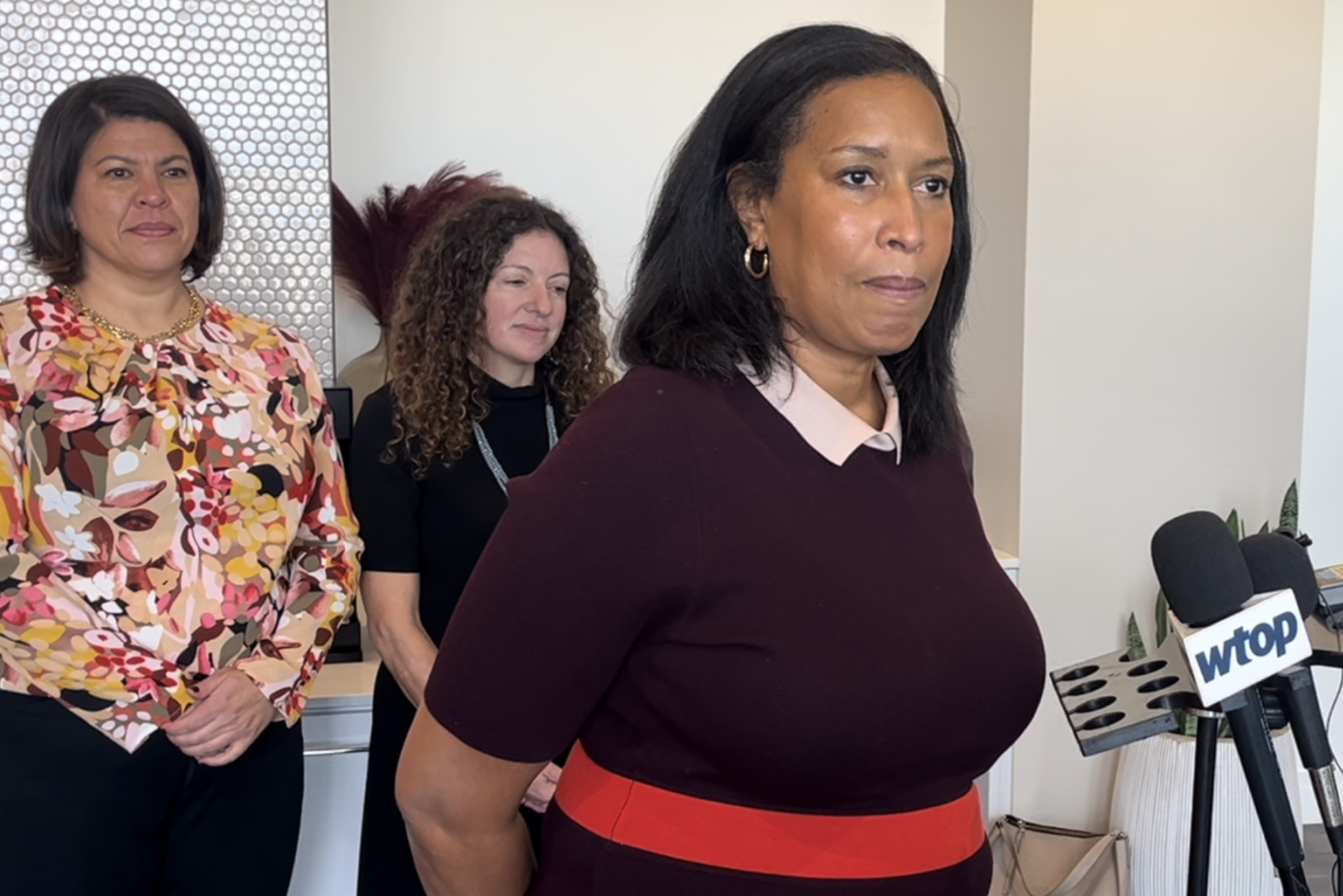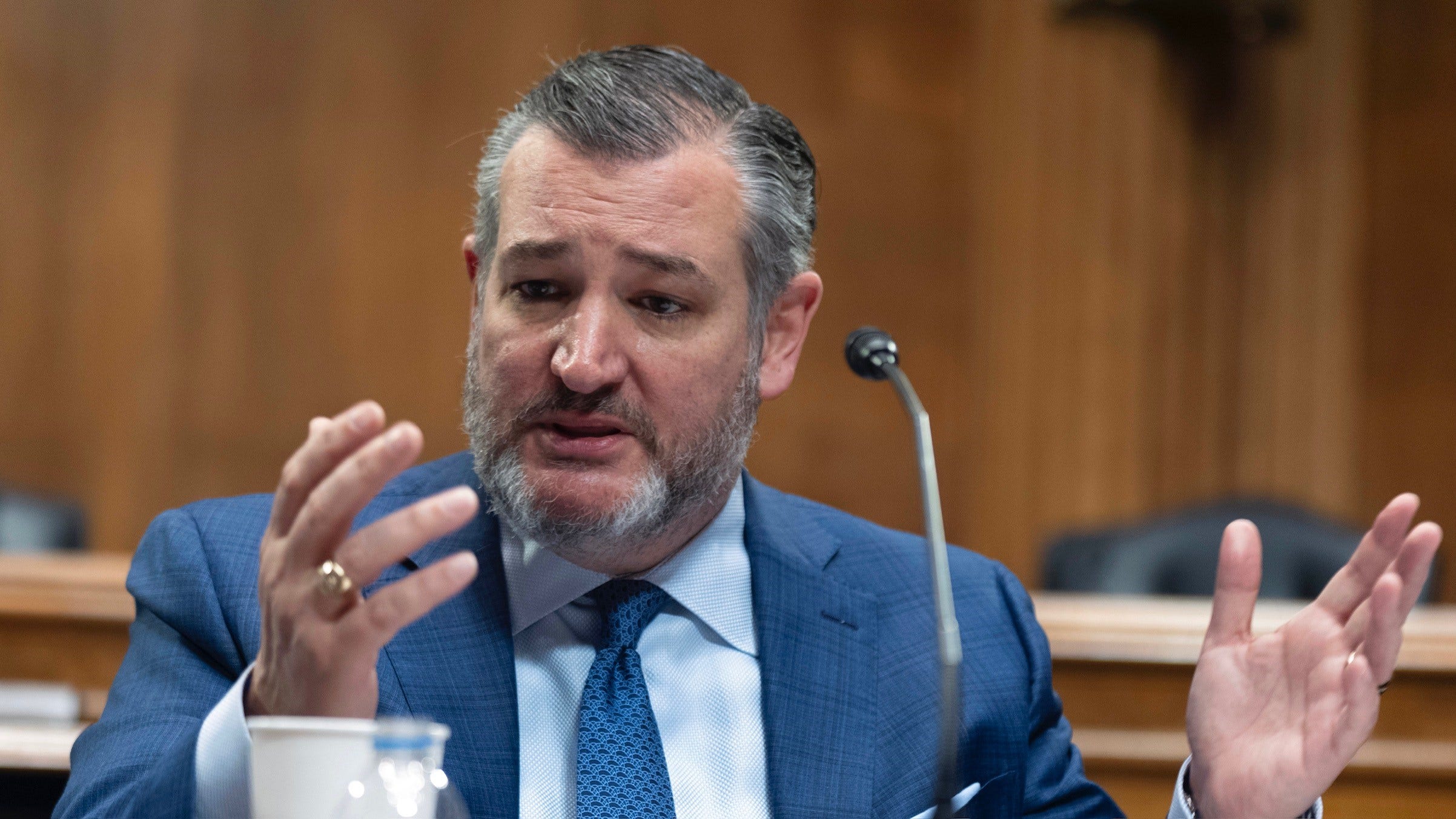World
Analysis: Why extending the Israel-Hamas truce won’t be easy

With hours left of the agreed pause in Gaza fighting, Israel, Hamas and the intermediaries negotiating between them were on Wednesday again in a frenzy of activity.
The original truce was to have lasted until Monday, but Hamas decided to accept the Israeli offer to extend the ceasefire by a day for each group of 10 captives released. As the original deadline loomed an extension was proclaimed, but of just two days.
Two is still better than nothing, and the two extra days bought the Qatari and Egyptian mediators extra time to work out how to convince both sides to prolong the truce even further or turn it into a permanent ceasefire.
It has not been easy. While negotiations through intermediaries have been difficult, long and often tedious, they did finally produce some results and an agreement in principle that led to the initial four-day truce and indirectly to the two-day extension. During initial negotiations, Israel unilaterally declared that the pause could be made longer by the release of additional captives, so not much had to be additionally negotiated. Yet, as more time passed, talks through Qatari and Egyptian intermediaries seemed to be dragging, and lists of detainees to be released kept being agreed upon and accepted later and later each day; at one point Hamas even threatened to stop the process and let the truce collapse.
Now, on Wednesday evening, the situation appears to be more complicated than ever. Hamas announced that it is seeking a further four-day extension, and even hinted at being ready to negotiate the release of all captives it is holding, in exchange for a more lasting cessation of hostilities. At the same time, Israel said it welcomes the possible release of additional captives, but sent mixed messages about the continuation of the pause.
In such an atmosphere of uncertainty mixed with anxiety and hope, international mediators are trying harder than ever. For the past two days, they have been joined in Qatar by the highest officials from the US, Israeli and Egyptian intelligence services.
No announcement has been made of the presence of their Hamas counterparts, but it is very hard to imagine that the Palestinian side would not be represented in such an intelligence summit.
One would expect that, with the experience of two rounds of negotiations, it would be easier to reach agreements on the continuation and expansion of the deals. Yet, there are many signs to suggest that the situation is getting more complicated with talks possibly getting bogged down.
How is it possible that from overwhelming optimism that marked the weekend mass celebrations of former captives rejoining their communities, the talks are now on the verge of failure with the real prospect of fighting resuming on Thursday?
There are several reasons for the apparent reluctance of both Israel and Hamas to prolong the truce by exchanging more captives.
First, tactical and strategic military reasons, mostly on the Israeli side. Over the past few days, several representatives of the Israeli military indicated that they would prefer the current two-day extension of the pause to be the last. Generals told the political leadership that the military believes that fighting should be resumed on Thursday morning.
From the very beginning of the armed intervention, the Israeli army was wary of having to go to war without clearly defined strategic goals. I warned that soldiers detest “open-ended” tasks. Prime Minister Benjamin Netanyahu repeated several times that his goal was to win the war by destroying Hamas, but he obviously never translated that into clear and measurable orders and tasks. Generals prefer to be told: “Go there and do that, if and when you achieve it your job is done”. Their eagerness to resume fighting is by no means an indication that they are bloodthirsty; on the contrary, it tells those who want to listen that they are realists.
Following the 7 October attacks, the Israeli military mobilised 360,000 reservists, deploying them alongside the standing army of 150,000 soldiers. While the fighting went on, each reservist and each unit, whether in Gaza or along the northern front facing Hezbollah, knew exactly what his or her task and purpose was. They were focused, in a military mindset, not overtly influenced by the atmosphere among civilians.
But as they stopped for four days, then for two more, many went home for short rest and were exposed to the doubts, uncertainties, fears and hopes of their families and relatives. For a couple of days, they lived almost as civilians, but, as the original pause was to expire on Monday, they would have had to return to units by Sunday afternoon – the time when the extension was announced. Military bureaucracy then had to decide whether to give them an extra day or two at home or rotate soldiers, with the eventual new group being granted just two days off and so on.
Another extension would further complicate the logistics of leave and rotation, but prolonged semi-civilian life could also damage the determination to fight.
After October 7, Israeli national adrenaline ran high and everyone was ready to fight. Now, seeing that the country’s politics is a mess; the leadership is in poorly hidden disarray and the prime minister is clearly troubled, shaken and insincere, soldiers may start to vacillate.
Aware of potential problems with morale and determination, generals obviously prefer to get the fighting over with, rather than endure more of the stop-go-stop-go orders that in all wars prove detrimental to the fighting capabilities of an army.

World
Video: I.C.C. Issues Arrest Warrant for Netanyahu Over War in Gaza

The International Criminal Court’s arrest warrants for Israel’s Prime Minister Benjamin Netanyahu and his former defense minister, Yoav Gallant, were issued for war crimes and crimes against humanity in Gaza. The court also sought to arrest Hamas’s military chief, Muhammad Deif, for crimes against humanity.
World
US citizen among 4 dead in Laos after suspected alcohol poisoning

An American, two Danes and one Australian tourist died after drinking tainted alcohol in Laos following reports that several people had been sickened in a town popular with backpackers.
The only victim’s identity publicly released so far is 19-year-old Bianca Jones of Australia.
Australian Prime Minister Anthony Albanese told Parliament on Thursday that Jones had died after being evacuated from Vang Vieng, Laos, for treatment in a Thai hospital. Her friend, also 19, remains hospitalized in neighboring Thailand.
“This is every parent’s very worst fear and a nightmare that no one should have to endure,” Albanese said, according to The Associated Press. “We also take this moment to say that we’re thinking of Bianca’s friend Holly Bowles, who is fighting for her life.”
45 PRO-DEMOCRACY HONG KONG ACTIVISTS SENTENCED TO UP TO 10 YEARS IN PRISON UNDER CHINA-BACKED LAW
A notice displayed at the bar of Nana Backpack hostel in Vang Vieng, Laos, Tuesday, Nov. 19, 2024. (AP Photo/Anupam Nath)
Shaun Bowles told reporters outside Bangkok Hospital on Wednesday that his daughter remained in critical condition and on life support.
“We just like to thank everyone from back home for all of the support and love that we’re receiving,” he said. “But we’d also like the people to appreciate right now, we just need privacy so we can spend as much time as we can with Holly.”
Australian media said Jones was the fourth foreign tourist to die after consuming the contaminated alcohol.
DRIVER IN CHINA KILLS 35 PEOPLE EXERCISING IN DELIBERATE ATTACK

A man plays pool at Nana Backpack hostel in Vang Vieng, Laos, Tuesday, Nov. 19, 2024. (AP Photo/Anupam Nath)
“The physician who examined her said the cause of death was a methanol poisoning, from fake liquor,” Phattanawong Chanphon, a police official in the Thai city, told Reuters. “The amount of methanol in her body was high, leading to swelling of the brain.”
Counterfeit liquor is a problem in Laos, with the governments of Australia and Britain warning citizens to be cautious when having drinks there.
Methanol is a toxic alcohol that is used industrially as a solvent, pesticide and alternative fuel source, according to the U.S. Centers for Disease Control and Prevention.

Foreign tourists have a drink at a nightclub at Nana Backpack hostel in Vang Vieng, Laos, Tuesday, Nov. 19, 2024. (AP Photo/Anupam Nath)
The U.S. Department of State did not respond to a Fox News Digital inquiry, but told the AP that local authorities were investigating the case and were responsible for providing any details. The State Department noted that the U.S. was providing consular assistance.
“At this time I would say to parents, to young people, please have a conversation about risks, please inform yourselves, please let’s work together to ensure this tragedy doesn’t happen again,” Australian Foreign Minister Penny Wong said after receiving news of Jones’ death.
The Associated Press and Reuters contributed to this request.
World
UK imposes sanctions on Isabel dos Santos, Ukrainian oligarch Firtash

The measures are a part of the Labour government tightening Britain’s anti-corruption sanctions regime.
The United Kingdom has barred Angolan billionaire Isabel dos Santos and Ukrainian oligarch Dmytro Firtash and frozen their UK assets, the government announced, in what it said was part of a new crackdown on “dirty money”.
The measures on Thursday were the first step in tightening Britain’s anti-corruption sanctions regime as promised in July’s election, the Labour government said.
“These unscrupulous individuals selfishly deprive their fellow citizens of much-needed funding for education, healthcare and infrastructure – for their own enrichment,” Foreign Secretary David Lammy said in a statement.
Dos Santos, whose father Jose Eduardo dos Santos served as Angola’s president for 38 years until 2017, is Africa’s first female billionaire and has faced corruption accusations in Angola and elsewhere for years. She denies the allegations and says she is the target of a long-running political vendetta.
She was sanctioned by the United States in 2021 for “involvement in significant corruption” and is barred from entering the country.
Britain said dos Santos abused her positions at Angolan state oil firm Sonangol and telecoms company Unitel to embezzle at least 350 million pounds ($440m).
Dos Santos lost an appeal to overturn an order freezing up to 580 million pounds of her assets in September as part of a lawsuit at London’s High Court brought by Unitel. Global police agency Interpol has issued a red notice for her.
In a statement cited by the Reuters news agency, dos Santos said that the British sanctions were “incorrect and unjustified”.
“I was not given the opportunity to defend myself against these allegations,” she said. “I intend to appeal and I hope that the United Kingdom will give me the opportunity to present my evidence.”
Firtash is wanted by Ukrainian and US authorities on suspicion of embezzling nearly $500m involving Ukraine’s gas transit system. He says the charges are without legal foundation.
He is currently in Austria fighting extradition to the US.
In June 2021, Ukrainian President Volodymyr Zelenskyy signed a decree imposing sanctions on Firtash, including the freezing of his assets and withdrawal of licences from his companies, after accusing him of selling titanium products to Russian military companies.
Britain said Firtash had extracted “hundreds of millions of pounds from Ukraine through corruption”, and hidden tens of millions of pounds of ill-gotten gains in the UK property market alone.
Britain also sanctioned his wife Lada Firtash, who it said held UK assets on his behalf including the site of the old Brompton Road rail station of the London Underground.
Latvian businessman and politician Aivars Lembergs, who was put on a US sanctions list in 2019 for alleged corruption, was also sanctioned, as was his daughter Liga Lemberga. The British government said Lembergs had “abused his political position to commit bribery and launder money.”
Lammy said the penalties were the start of a crackdown.
“I committed to taking on kleptocrats and the dirty money that empowers them when I became foreign secretary, and these sanctions mark the first step in delivering this ambition,” he said.
-
Business1 week ago
Column: OpenAI just scored a huge victory in a copyright case … or did it?
-

 Health1 week ago
Health1 week agoBird flu leaves teen in critical condition after country's first reported case
-

 Business5 days ago
Business5 days agoColumn: Molly White's message for journalists going freelance — be ready for the pitfalls
-
World1 week ago
Sarah Palin, NY Times Have Explored Settlement, as Judge Sets Defamation Retrial
-

 Politics4 days ago
Politics4 days agoTrump taps FCC member Brendan Carr to lead agency: 'Warrior for Free Speech'
-

 Science2 days ago
Science2 days agoTrump nominates Dr. Oz to head Medicare and Medicaid and help take on 'illness industrial complex'
-
/cdn.vox-cdn.com/uploads/chorus_asset/file/25739950/247386_Elon_Musk_Open_AI_CVirginia.jpg)
/cdn.vox-cdn.com/uploads/chorus_asset/file/25739950/247386_Elon_Musk_Open_AI_CVirginia.jpg) Technology3 days ago
Technology3 days agoInside Elon Musk’s messy breakup with OpenAI
-

 Lifestyle4 days ago
Lifestyle4 days agoSome in the U.S. farm industry are alarmed by Trump's embrace of RFK Jr. and tariffs




















